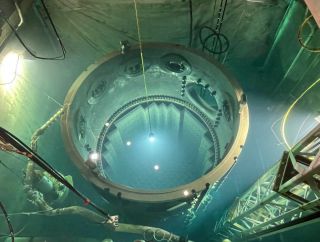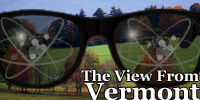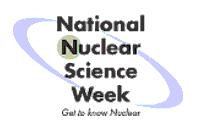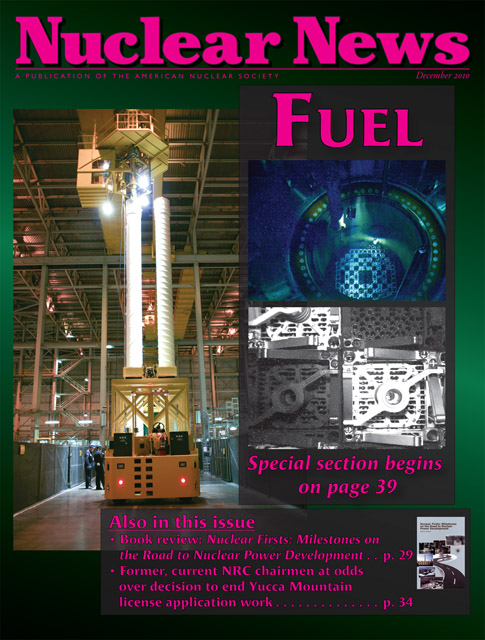Food irradiation, explained
 Let's talk about food irradiation, which has made some in the general public fearful simply because a form of the word "radiation" is involved. Irradiation is used to destroy harmful bacteria and parasites that might be inadvertently present in some food matter. Irradiation makes the food safer for human consumption and, at low levels, it extends food's shelf life and can be used to control insects.
Let's talk about food irradiation, which has made some in the general public fearful simply because a form of the word "radiation" is involved. Irradiation is used to destroy harmful bacteria and parasites that might be inadvertently present in some food matter. Irradiation makes the food safer for human consumption and, at low levels, it extends food's shelf life and can be used to control insects.


 American Nuclear Society scholarship applications for the 2011-2012 academic year are now online! Since ANS was established in 1954, it has promoted the awareness and understanding of nuclear science and technology (NS&T). To further that mission, ANS administers scholarships each year that support the development and education of those who will research and implement future applications of NS&T.
American Nuclear Society scholarship applications for the 2011-2012 academic year are now online! Since ANS was established in 1954, it has promoted the awareness and understanding of nuclear science and technology (NS&T). To further that mission, ANS administers scholarships each year that support the development and education of those who will research and implement future applications of NS&T. It's not too late to go nuclear for the holidays.
It's not too late to go nuclear for the holidays.  The
The  The
The 
 In a
In a  With Vermont's governor-elect, Peter Shumlin (D.)-the self-described number one opponent of the Vermont Yankee nuclear power plant-picking his cabinet and maintaining a high profile, the struggle continues unabated by the plant's proponents who want to keep it from being shut down.
With Vermont's governor-elect, Peter Shumlin (D.)-the self-described number one opponent of the Vermont Yankee nuclear power plant-picking his cabinet and maintaining a high profile, the struggle continues unabated by the plant's proponents who want to keep it from being shut down. National Nuclear Science Week will be held on January 24-28, 2011. The week is designed to recognize the contributions of the nuclear science industry and those who work in it every day.
National Nuclear Science Week will be held on January 24-28, 2011. The week is designed to recognize the contributions of the nuclear science industry and those who work in it every day.
 The December issue of
The December issue of  Having recently attended a Pillsbury and Nuclear Energy Institute seminar on "Export Controls for the Nuclear Renaissance," it became clear to me why the United States is losing its leadership position in nuclear energy: The bureaucracy is winning the war over effectiveness of policy and nonproliferation.
Having recently attended a Pillsbury and Nuclear Energy Institute seminar on "Export Controls for the Nuclear Renaissance," it became clear to me why the United States is losing its leadership position in nuclear energy: The bureaucracy is winning the war over effectiveness of policy and nonproliferation. The 30th Carnival of Nuclear Energy blogs is up at
The 30th Carnival of Nuclear Energy blogs is up at